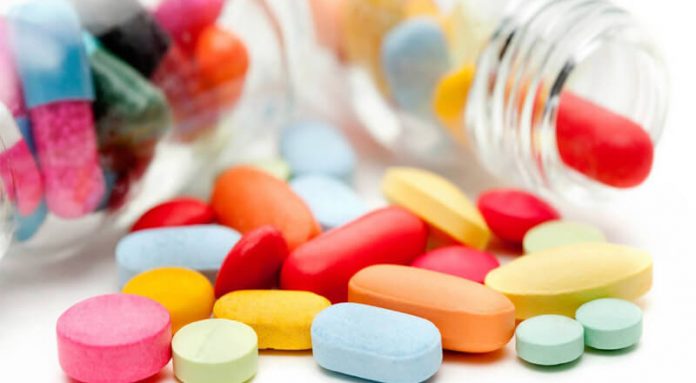LAHORE: The Ministry of National Health Service Regulations and Coordination on Monday announced that there will be no immediate increase in drug prices prompting criticism from the pharmaceutical industry which said that such decisions would further contract the industry.
The pharmaceutical industry was expecting the finalisation of a 10 per cent price increase in line with Consumer Price Index (CPI) inflation under the Drug Pricing Policy 2018 compensating it for utilities and input cost increase.
The Drug Pricing Policy 2018 grants pharmaceutical manufacturers the right to automatically increase prices by 10 per cent annually without the intervention of the government.
However, the government revised the Drug Pricing Policy 2018 to bring it in line with the Drug Act 1976.
In doing so, the government has created a step-in clause in Drug Pricing Policy whereby the government can exclude any category of drugs from the annual increase in prices.
Drug Regulatory Authority Of Pakistan (DRAP) had recently notified the amendments made by the government to Drug Pricing Policy 2018.
The government has not approved any increase in the price of essential drugs.
All this was done in the backdrop of assurance given by the pharmaceutical industry that it will not apply for an annual raise of drug prices at least till September 2020 due to the Covid-19 pandemic.
The freeze in prices did not go well with the pharmaceutical industry as the sector contracted by 5.38 per cent this year, putting a major portion of Pakistan’s non-agriculture workforce engaged with it under pressure.
“The government is backtracking on its own given policy. Drug pricing has been made a political issue,” said a local manufacturer.
He added that the politicisation of the pricing issue was hurting the industry, employment and investment.
“The companies need profits to invest and spend on Research and Development. The policy makers should also understand that the input cost of the companies has increased manifold in just one year,” reasoned the manufacturer.
The US dollar has appreciated by 13.5 per cent in one year against the Pakistani rupee. Besides, as per Pakistan Bureau of Statistics, large-scale manufacturing sector in the country contracted by 7.78 per cent in the previous months.
During the pandemic, the major decline has been observed in textile (-2.57 per cent), food, beverage and tobacco (-2.33 per cent), coke and petroleum products (-17.46 per cent), pharmaceuticals (-5.38 per cent), chemicals (-2.30 per cent), automobiles (-36.50 per cent), iron and steel products (-7.96 per cent), electronics (-13.54 per cent), engineering products (-7.05 per cent) and wood products (-22.11 per cent).
“The estimated size of informal employment in the non-agriculture sector is around 27 million so such decisions by the government will severely affect these employees,” said the manufacturer.
“The government needs to support the pharmaceutical industry of the country which will benefit both the national economy and informal employment in the country,” suggested the manufacturer.





The domestic pharmaceutical sector has no justification for increase in their Generic, or local branded products. Covid-19 compliance and the challenges Pakistan is under going should be faith in Allah to have sympathy with sick humanity.
The should provide a reasonable price cut, and reduce the cost by reducing the packing, packaging, strips, advertising, marketing, sales.
Counterfeiting, unfair, practices should be strongly checked by he DRAP.
This is not the time to change the model of the car for at least 4 years. Which when dawn will have a new EV (Electric Car) with FiberGlass body, very cost effective, to be recharged from the Solar Sun-Roof of your car, van, or tuk-tuk. Please pray Allah SWT for Covid-19 and a nation to support the sick, unwell the best possible. Efforts rewarded by Allah SWT.